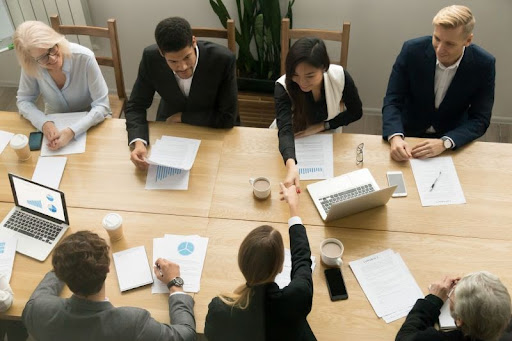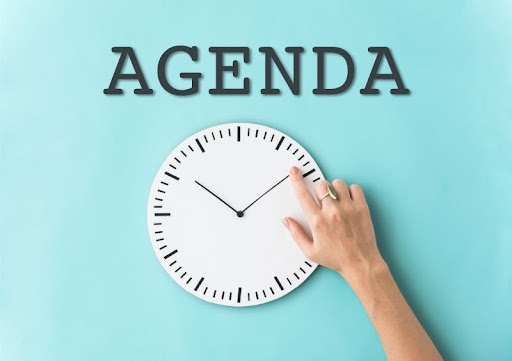
The role of the facilitator and the basics of effective facilitation
During group work and meetings, situations often arise where participants somehow talk past each other, do not understand each other or conflict arises. It is also common that a meeting or discussion is somehow aimless, it is not clear where to go from and where to go, or the time available is not well managed. The involvement of a facilitator can be a solution to these problems.
In this article, we will look at who a facilitator is, what their role is, what types of facilitator they are and what personal competences they need. Finally, some practical tips for effective facilitation are given.

Who is a facilitator and what is their role?
A facilitator is an impartial helper who attends an event and facilitates and promotes cooperation and effective teamwork in order to help the team achieve its goals and find the best solutions. The event can be a meeting or a meeting, but also a wider event.
Tasks of the facilitator
- Plan the agenda of the event, the appropriate team structure
- Ensure that participants are provided with the appropriate information and technical support for joint work
- Guides and leads the joint work, while remaining completely impartial
- Helps to set and understand common goals
- Increases the activity of the participants, helps to generate and organise ideas
- Identifies difficulties and provides tools to help you solve them
- Recognises old and new conflicts and helps to understand each other and find consensus
- Helps you find solutions that work
- Increases the commitment and thus the responsibility and motivation of the participants in the subsequent implementation of the solutions found
- Record, summarise and close the event
Facilitator types
Facilitators can be needed in many areas of life: business, events, education, adult education, but also in facilitating social or inter-group dialogue, mediation.
Business facilitator
The business facilitator helps to conduct and structure effective meetings for different business stakeholders and groups. All this without imposing his/her own views at any level.
The aim is to get participants to participate as actively as possible, so that they can find the best common solution for them, make good choices and commit to implementing them.
The business facilitator should be able to recognise conflicts arising from differences of interest and organisational hierarchies, help the parties to better understand each other and bring positions closer together.
Facilitator in education
In the modern approach to teaching, the teacher can also be a facilitator. The facilitator-teacher's knowledge is the same as that of other teachers in their field, but the aim is to involve students more deeply in their own learning process than is traditionally the case, and thus to give them greater responsibility for their learning.
Facilitator in the resolution of social conflicts
The role of the facilitator is also prominent in reconciliation processes, both during and after conflicts. In such cases, the positions of the parties are usually very different and may even be completely opposite. The facilitator:
- Promotes constructive and democratic dialogue
- It is completely independent of the parties' positions and can distance itself from personal opinions
- Helps to develop a common vision and position
- Helps to listen to, understand and appreciate the feelings, experiences and perspectives of opposing parties

What skills should a facilitator have?
The basic skills of a facilitator include good organisation, a good sense of time and the ability to act confidently to ensure that participants are able to maintain focus and follow the agenda. But there are also a number of other skills needed to make the process effective:
- Knowledge of group dynamics, recognising the behaviour of groups and individuals
- Sensitive attention to both the individual, the group and one's own emotional state.
- Outstanding communication and mediation skills, enabling the facilitator to paraphrase what the parties have to say in order to better understand each other's views that are blocking consensus
- Knowledge of decision-making processes and facilitating group decision-making
- Ability to set the right agenda, group structure
- Confident in handling hurtful and offensive comments appropriately
- Comprehensive knowledge of visual, written and graphic methods to help you better understand and illustrate what is being said
How can facilitation be effective?
The basis of effective facilitation is to understand the outcome the group is trying to achieve and the context in which it is happening. Only then is it possible to select the right tools and develop the structure and agenda. It may also be the case that there are several issues or objectives that will be the subject of the event: in this case, we need to understand each of them.
Designing the structure
The first consideration when designing the structure is the size of the cluster. For small to medium sized events, an open, well-facilitated meeting can be effective.
For larger groups, however, consider creating smaller groups where participants can comfortably post and discuss their ideas. This will require planning the appropriate technical background and the way in which the groups can later present their results.
When designing the structure, it is also worth considering the layout of the venue to ensure that the layout best encourages active participation.

Creating the agenda
A good agenda focuses on results and tries to get events moving naturally in the right direction. The following points are worth considering when creating an agenda:
- What should participants know before and at the event? How and when can we provide this information?
- What should be the order of the topics to be covered and how much time should be available per topic?
- How can participants get to know each other? Here you should think about interesting, attention-grabbing ways to
- How can we ensure that the goals are understood by all, and how can we define and prioritise common goals?
- If it is a multi-session event, how much time will be allocated to each session and who can attend each session?
- How will the results of each meeting be linked to the next meetings?
- How and when do we summarise what has been said? How do we close the event?
Leading and managing the event
The first, very important task when running an event is to lay down the ground rules. For example, only one person should speak at a time, or participants should not interrupt each other. Then the objectives, agenda and roles can be clarified.
The interactive and entertaining presentation of the participants will help to build the momentum needed to develop creative group processes. However, this momentum can be lost later on, and techniques (e.g. brainstorming) should be used to re-energise the dialogue. It is also possible for the team to become over-enthusiastic, or for tempers to flare - a break should be considered. The key is to maintain the balance needed for optimal functioning.
What else to look out for during the event?
- Try to filter out and close off side threads to keep the focus!
- Let's make sure we keep the agenda as manageable as possible! Be aware of what you have achieved so far and often summarise what has been said!
- Use techniques that can engage the reluctant person!
- If one person dominates the discussions, thank them for their active participation, but make it clear that the participation of others is necessary for success
- Any offensive or hurtful comments will be reported and dealt with immediately!
Summary
The role of a facilitator is a very complex one, requiring a good knowledge of group functioning, group dynamics, and different conflict management methods. It is necessary to know and support the decision-making processes of the groups, which ultimately lead to the development of a consensus. The role of facilitator is therefore not an easy one, but it can achieve enormous results in many different areas of life.
Have a question? Contact us!
Are you unsure about what form of support could solve your problems? Read more about our coaching services here, or contact us!

